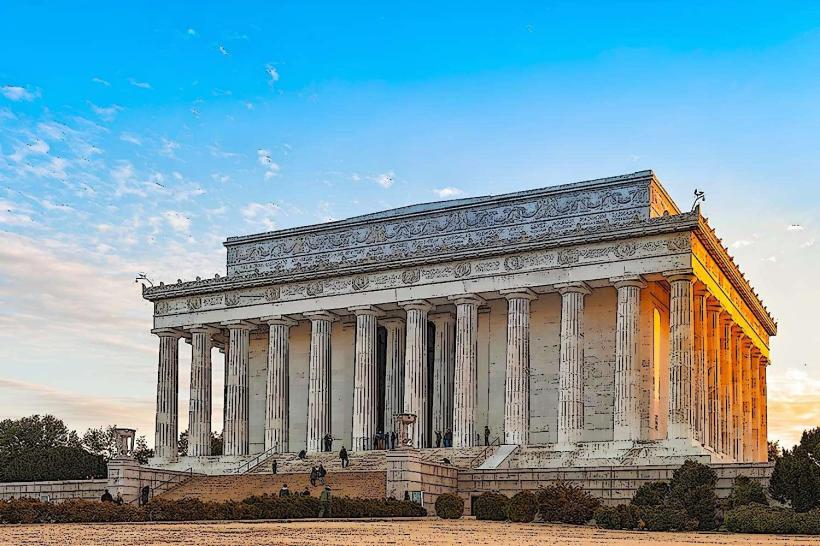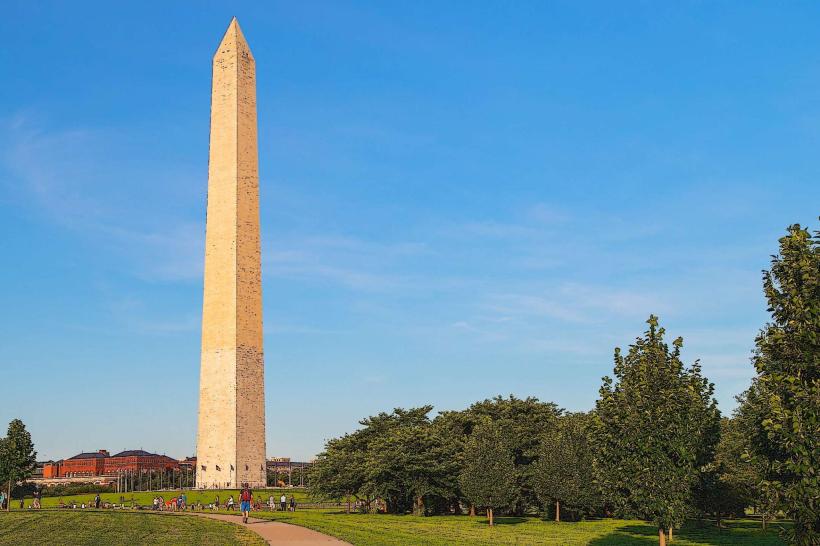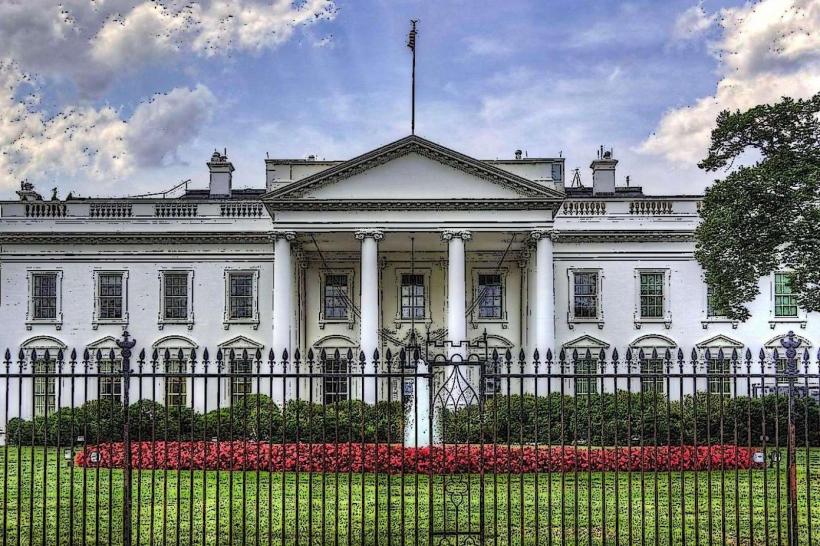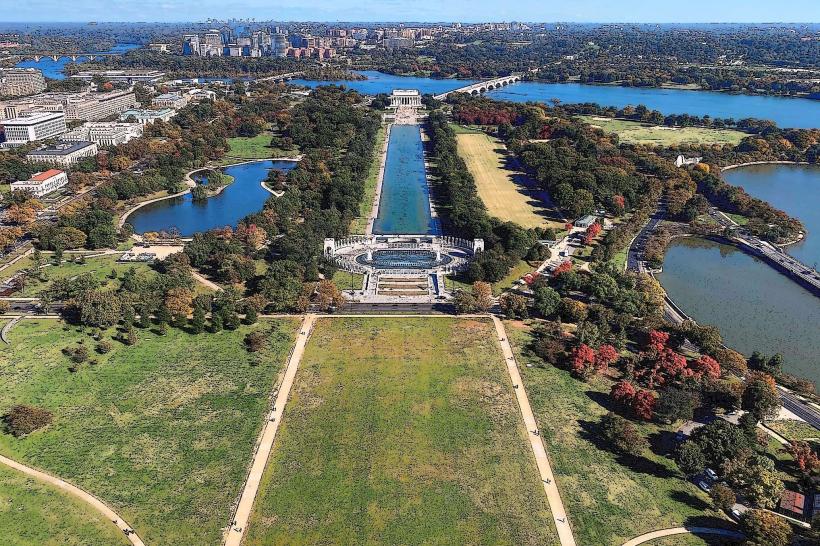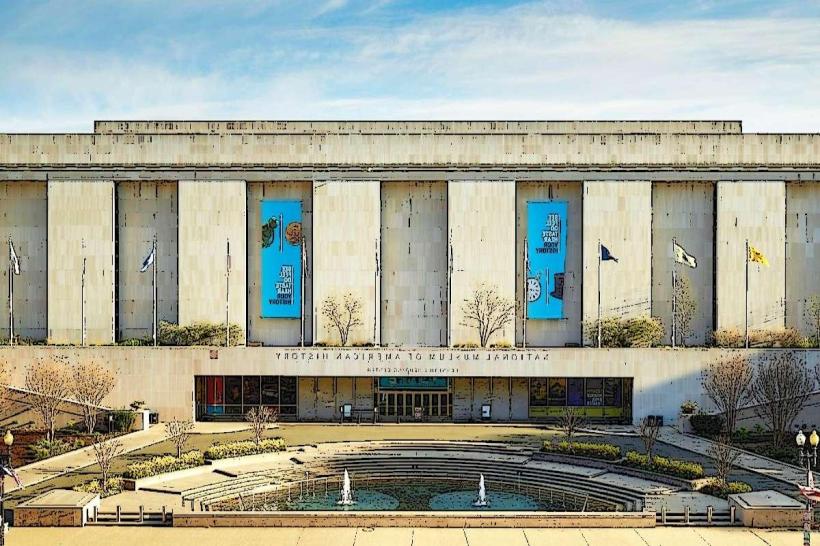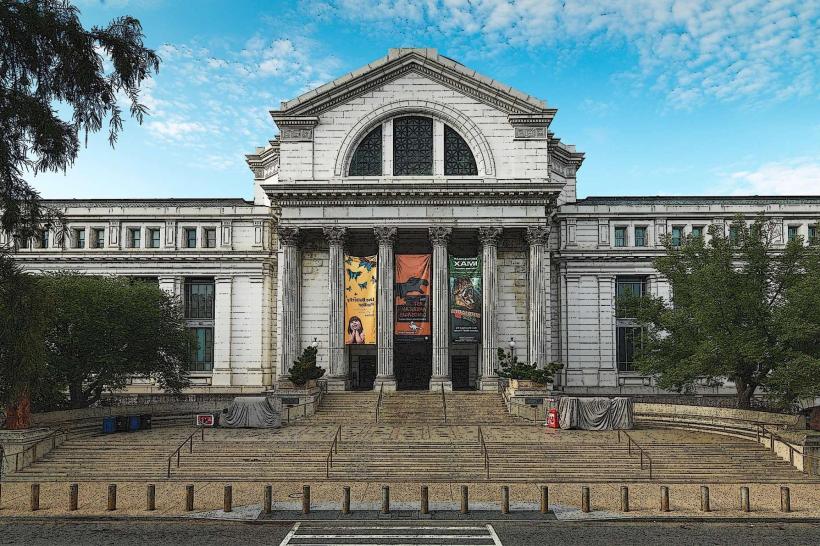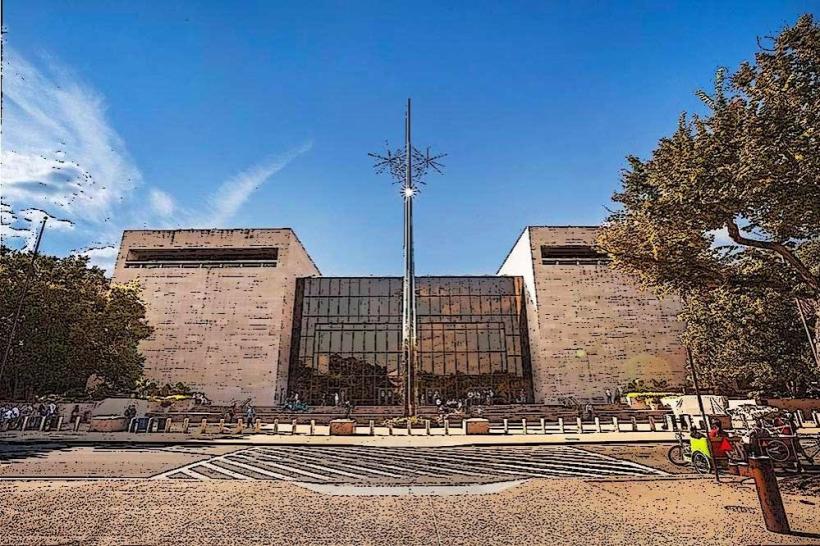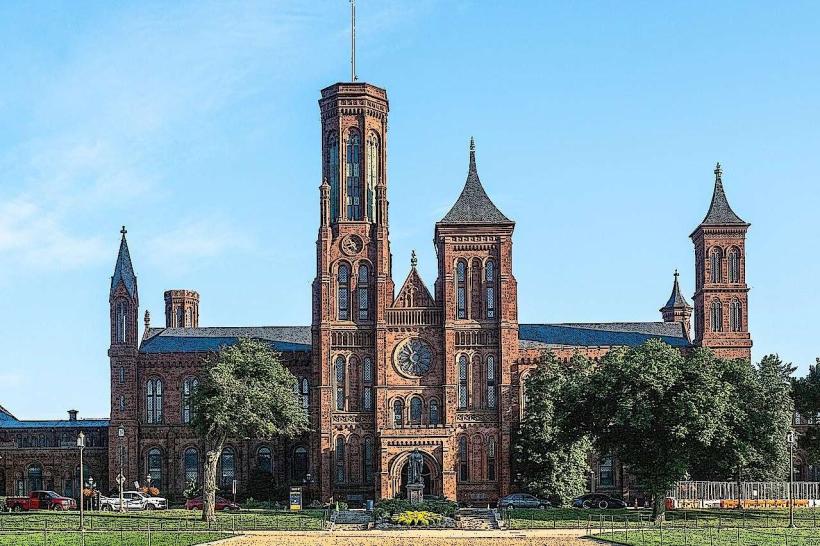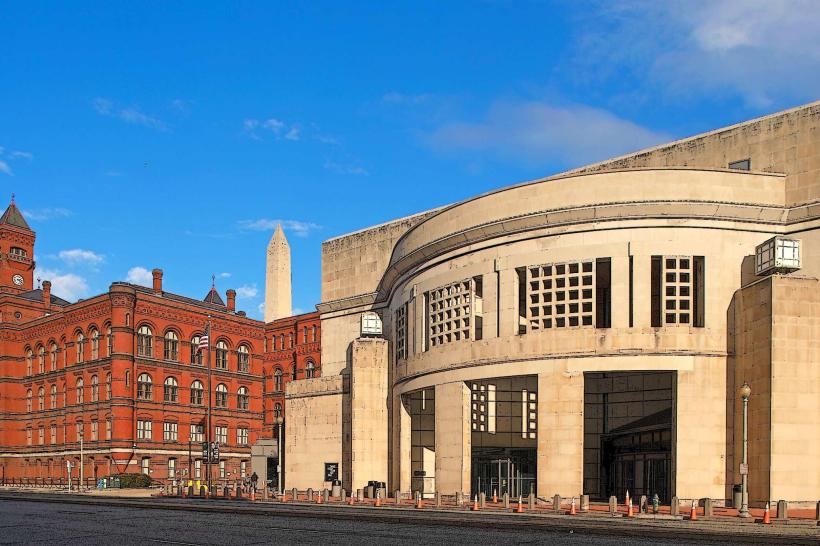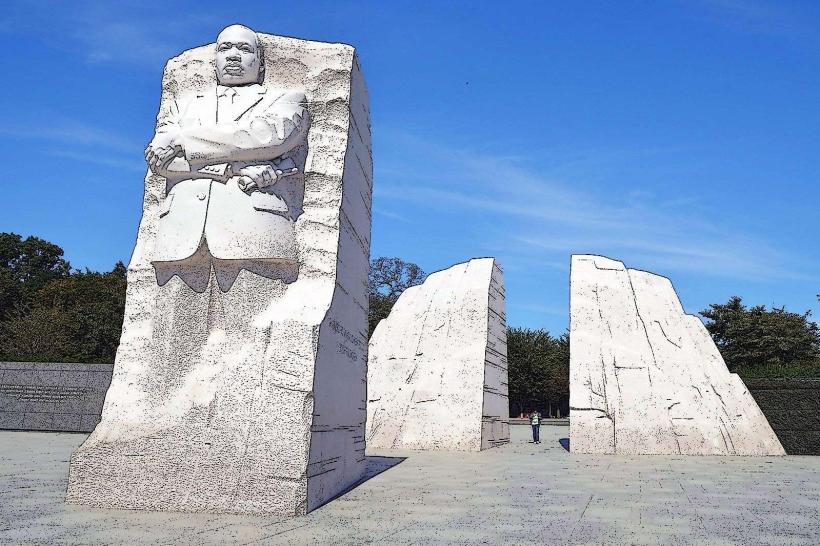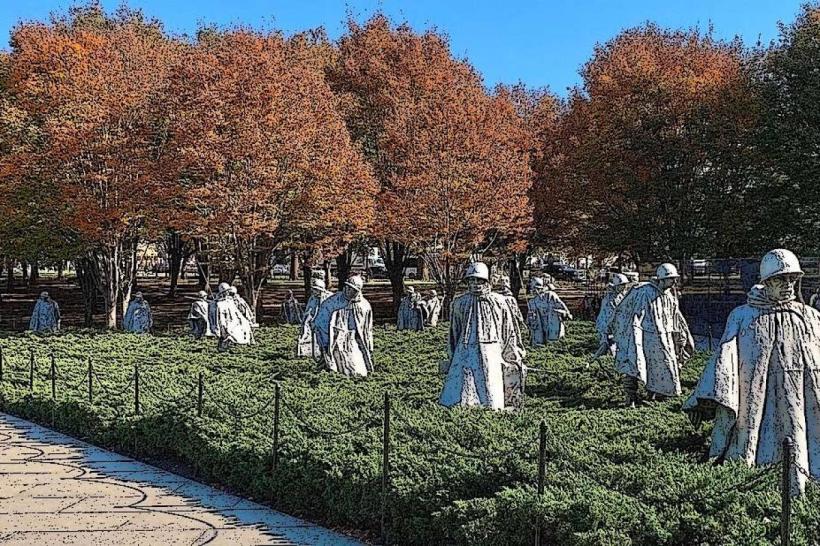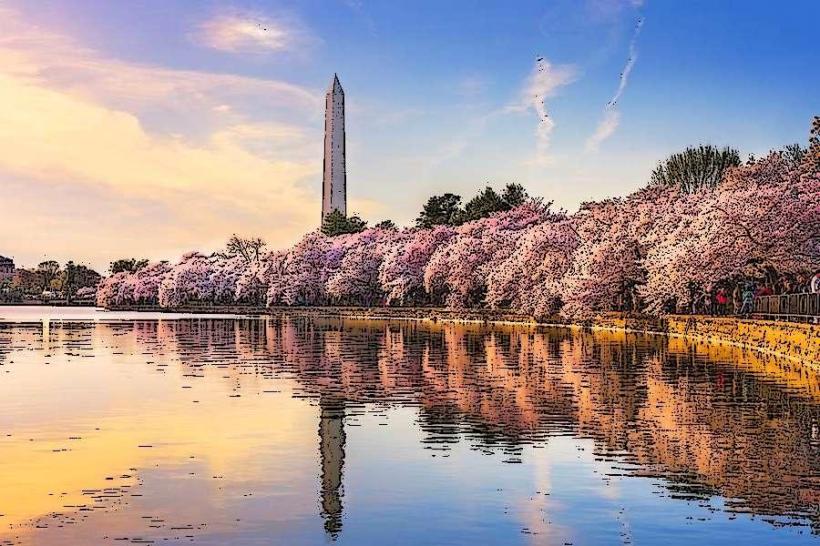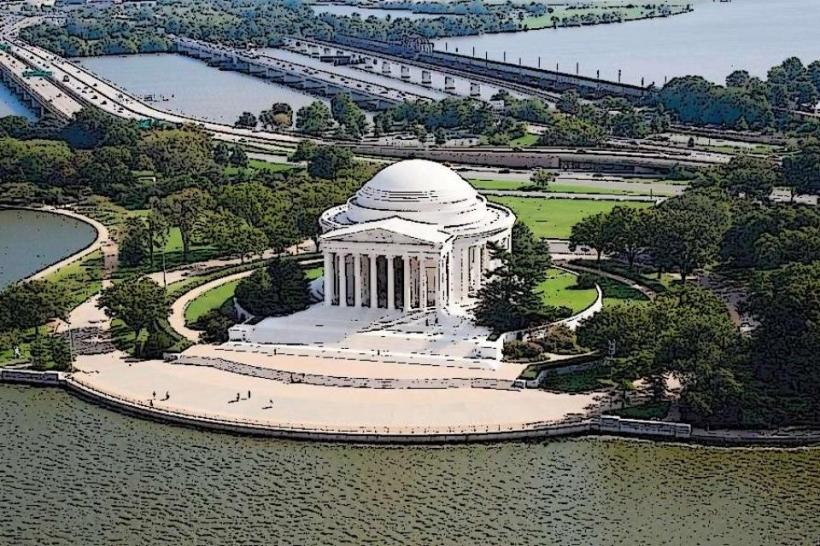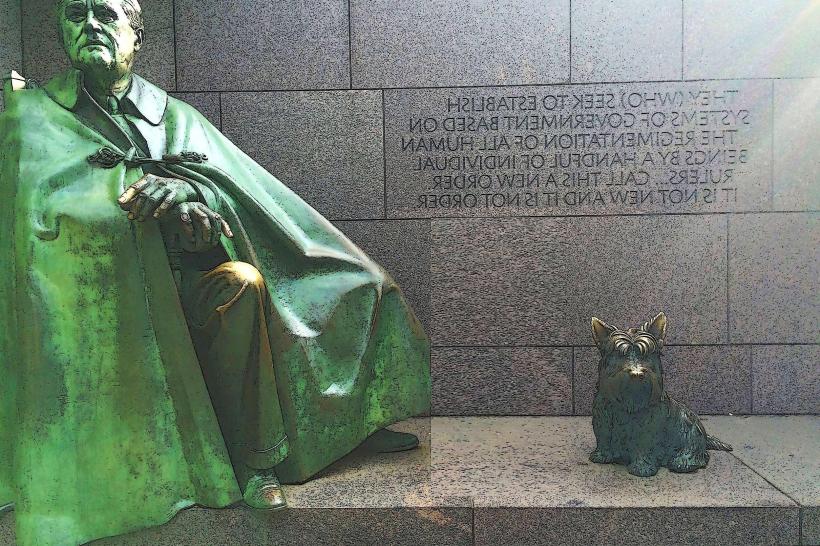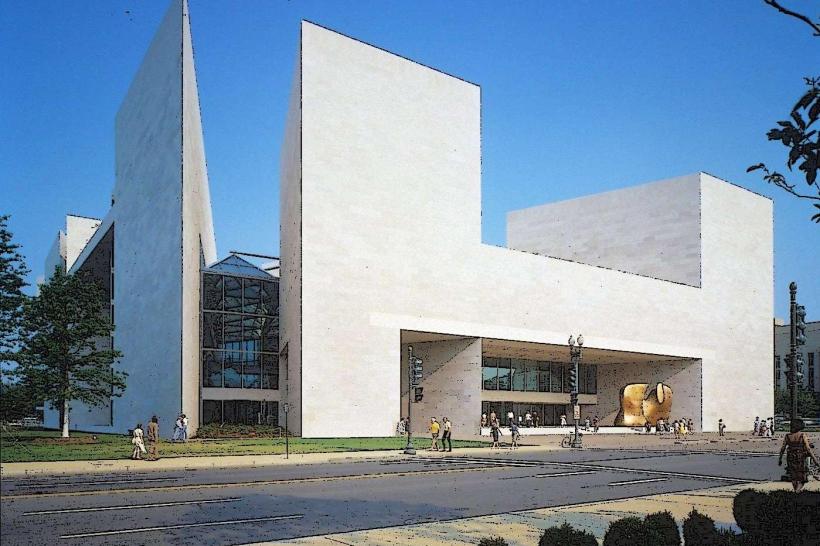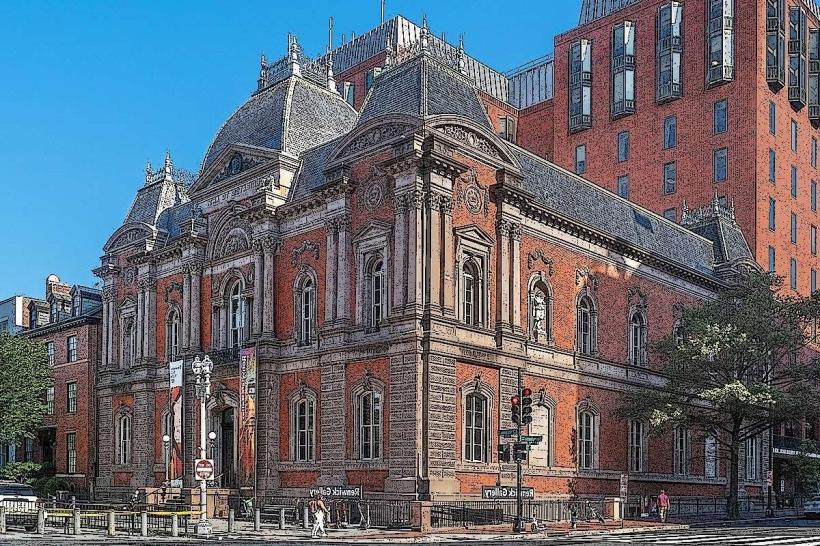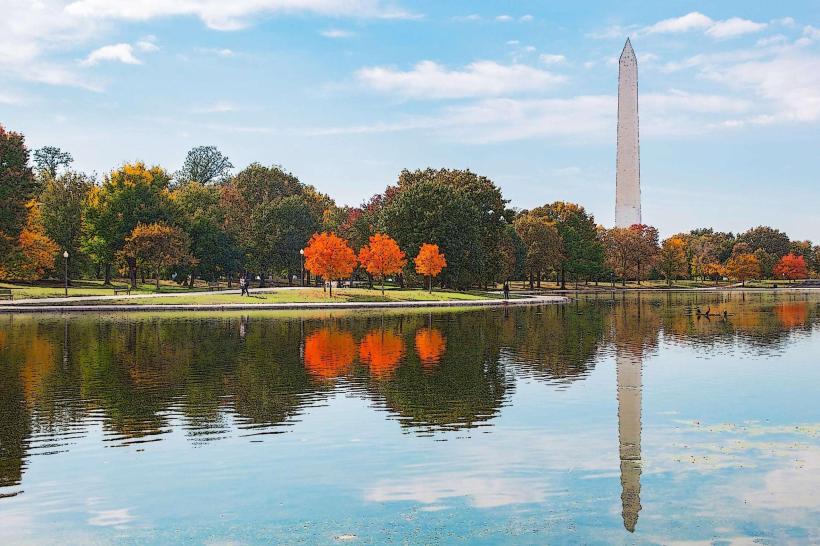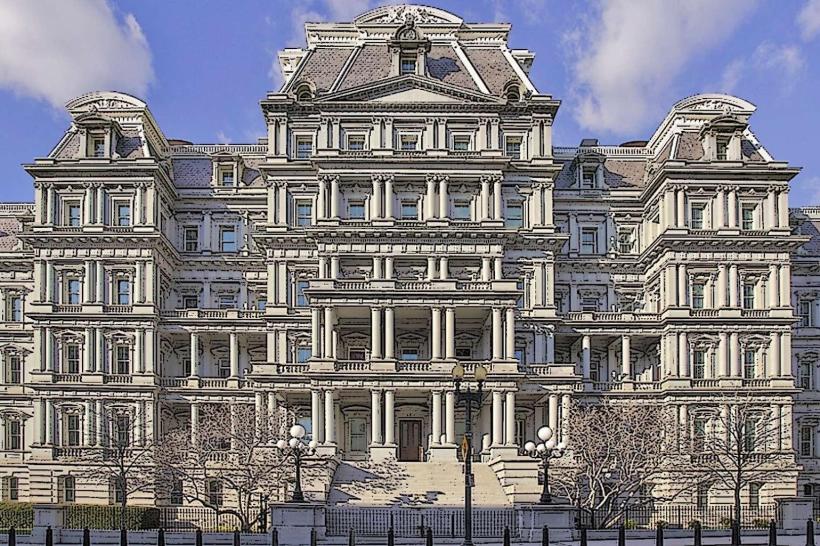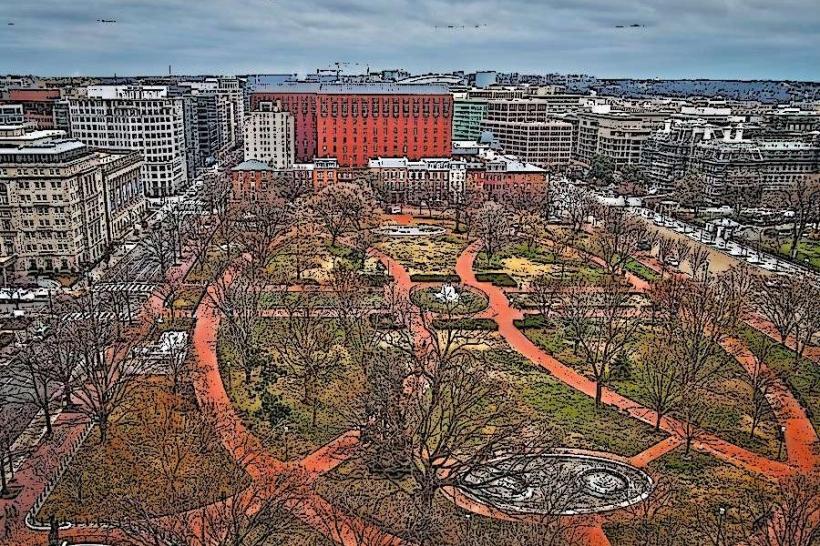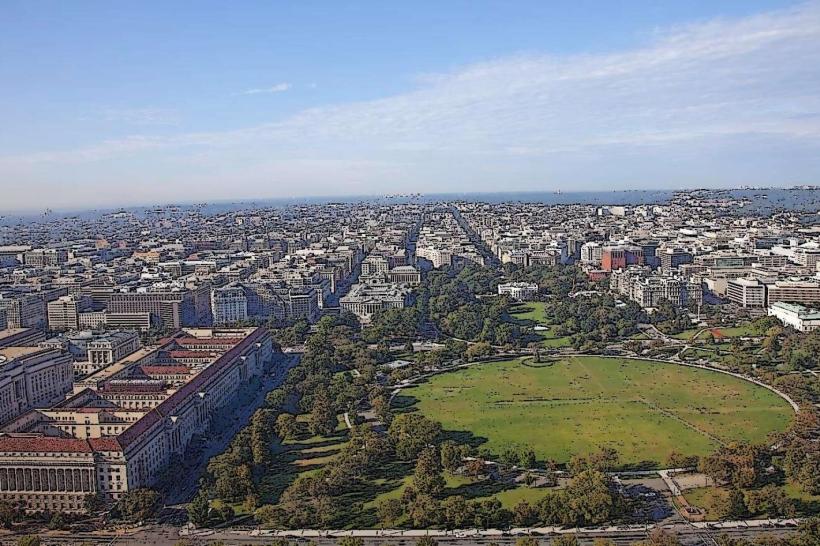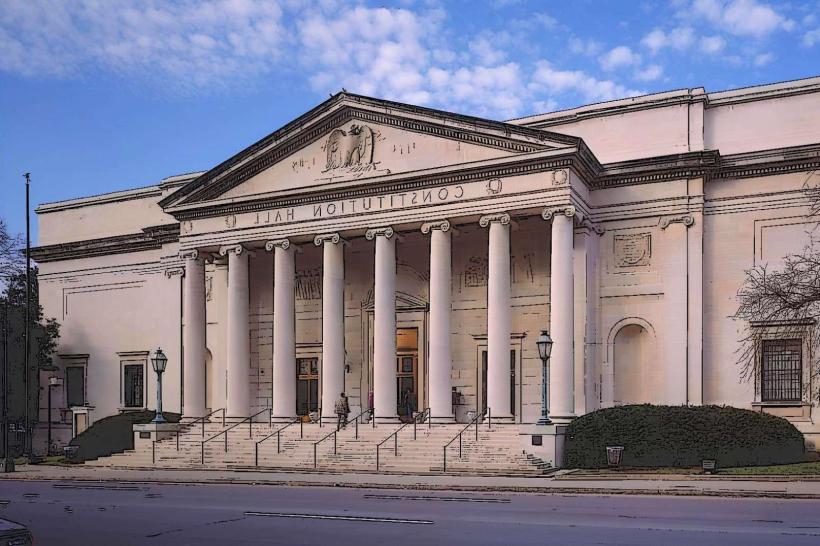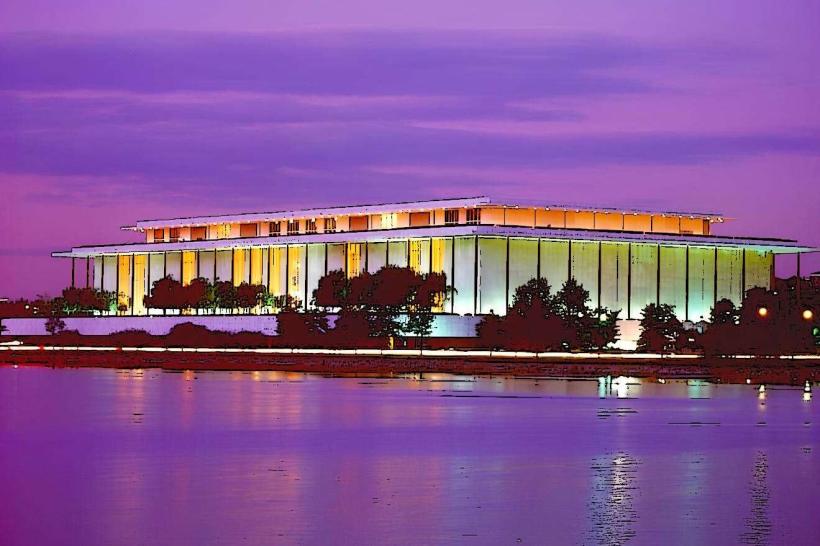Information
Landmark: National Museum of African American History and CultureCity: Northwest Washington
Country: USA Washington DC
Continent: North America
National Museum of African American History and Culture, Northwest Washington, USA Washington DC, North America
The National Museum of African American History and Culture (NMAAHC) is a profound and dynamic Smithsonian museum located on the National Mall in Washington, D.C. It is dedicated to documenting, preserving, and celebrating the rich history, culture, and contributions of African Americans throughout U.S. history.
Location and Architectural Design
The museum is situated at 1400 Constitution Avenue NW, near the Washington Monument and the National Museum of American History.
Architecturally striking, the building features a distinctive three-tiered, corona-shaped design inspired by the traditional Yoruban crown from West Africa.
Its exterior is clad in a bronze-colored, intricate lattice that both filters sunlight and evokes African craftsmanship, symbolizing resilience and cultural identity.
Designed by a consortium of architects, including David Adjaye and Philip Freelon, the museum seamlessly blends modern aesthetics with deep cultural symbolism.
Opened to the public on September 24, 2016, the museum represents the newest addition to the Smithsonian complex and one of the few dedicated to African American history and culture on a national level.
Mission and Significance
The NMAAHC is the only national museum devoted exclusively to African American life, history, and culture.
Its mission is to foster a more complete understanding of American history by exploring the African American experience from slavery and segregation to contemporary times.
The museum serves as a platform to highlight struggles for freedom and justice, resilience, creativity, and significant achievements across all facets of American life.
Collections and Exhibitions
The museum’s collection includes over 37,000 artifacts spanning more than 400 years of history.
Exhibits cover a wide range of themes, including the transatlantic slave trade, Reconstruction, the Civil Rights Movement, Black culture in arts, music, sports, entrepreneurship, and politics.
Notable artifacts include:
A slave cabin that offers a tangible and powerful connection to the realities of slavery.
Personal items from prominent figures such as Harriet Tubman, Frederick Douglass, Rosa Parks, and Barack Obama.
Cultural treasures like musical instruments, quilts, and artwork showcasing African American creativity.
The museum features interactive exhibits, multimedia presentations, oral histories, and immersive experiences that engage visitors of all ages.
Educational and Community Role
The NMAAHC actively promotes education and dialogue around African American history, civil rights, and social justice issues.
It hosts lectures, workshops, film screenings, and community events to deepen public understanding and encourage reflection.
The museum partners with schools, cultural organizations, and scholars to advance research and awareness.
It serves as a vital space for honoring the legacy of African Americans and inspiring future generations.
Visitor Experience
Visitors enter the museum through a grand pavilion and move through a chronological journey that begins with the beginnings of African presence in America.
The design of the interior spaces enhances storytelling with evocative displays, thoughtfully curated artifacts, and innovative technology.
Special exhibits rotate regularly to explore contemporary topics and emerging scholarship.
The museum’s cafe and gift shop offer culturally themed cuisine and merchandise, enriching the visitor experience.
Impact and Recognition
Since opening, the NMAAHC has become one of the most visited Smithsonian museums, drawing millions of visitors annually.
It stands as a testament to the resilience, achievements, and ongoing contributions of African Americans to the nation’s fabric.
The museum plays a critical role in broadening the narrative of American history, fostering inclusion, and encouraging dialogue on race and identity.
Summary
The National Museum of African American History and Culture is a landmark institution dedicated to illuminating the full spectrum of African American experiences. Its architecturally stunning design, expansive collection, and powerful storytelling combine to create a moving tribute that educates, inspires, and challenges visitors. Serving as both a cultural repository and a center for learning, the museum enriches the National Mall and the nation’s collective memory with the vital stories of African Americans’ enduring impact on American history and culture.

